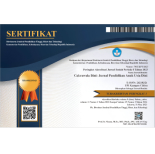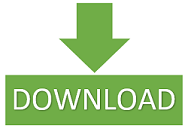Analysis of the Clean and Healthy Lifestyle Program Implementation in the City of Mataram
Abstract
The Importance of Early Childhood Education (ECE) in shaping clean and healthy living behaviors. The health and cleanliness aspects of children are crucial elements in the formation of physical and spiritual development. Kindergartens (TK) are considered to have a central role in creating positive environments and habits related to cleanliness and health. However, evaluation results indicate that its implementation has not been optimal, especially after the COVID-19 pandemic period, precisely in the years 2023-2024. Understanding the urgency of this issue is paramount. Early childhood is a critical period for the establishment of lifelong habits, and the impact of health and cleanliness practices during this time resonates throughout one's life. This research aims to shape and implement the PHBS program in the Selaparang district. The research method used is a quantitative research survey method. Respondents in this study consist of school principals. Data collection techniques in this study are through questionnaires and interviews. Based on the research results, it can be known that the form of PHBS program implementation consists of two main categories, namely personal hygiene and environmental cleanliness. The average final scores for the implementation of personal hygiene category (92%) and environmental cleanliness (96%) thus the overall average implementation (93%) falls under the category of excellent. thus showing that the PHBS program as a whole has been successfully implemented well. This has the potential to have a positive impact on the health and well-being of children in the kindergarten.
Keywords
Full Text:
PDFReferences
Agus, A. R., Nasrullah, M. E., Sismanto, A., and Wati, N. (2023). Edukasi pola hidup bersih dan sehat pada remaja Desa Jabi Kecamatan Napal Putih. Jurnal Pengabdian Kesehatan, 2(1), 54-62.
Anhusadar, L., and Islamiyah, I. (2020). Penerapan perilaku hidup bersih dan sehat anak usia dini di tengah pandemi covid 19. Jurnal Obsesi: Jurnal Pendidikan Anak Usia Dini, 5(1), 463-475.
Apriliawati, D. (2020). Diary study sebagai metode pengumpulan data pada riset kuantitatif: Sebuah literature review. Journal of Psychological Perspective, 2(2), 79-89.
Aulina, C. N., and Astutik, Y. (2019). Peningkatan kesehatan anak usia dini dengan penerapan perilaku hidup bersih dan sehat (PHBS) di TK Kecamatan Candi Sidoarjo. AKSIOLOGIYA: Jurnal Pengabdian Kepada Masyarakat, 3(1), 50-58.
Hayati, F., and Fatmalia, R. (2022). Analisis perilaku hidup bersih dan sehat (PHBS) di Lembaga PAUD Daerah tertinggal, terdepan, terluar Aceh Besar (3T) pada masa new normal. Bunayya: Jurnal Pendidikan Anak, 8(1), 1-11.
Ismail, M. J. (2021). Pendidikan karakter peduli lingkungan dan menjaga kebersihan di sekolah. Guru Tua: Jurnal Pendidikan Dan Pembelajaran, 4(1), 59-68.
Julianti, R., Nasirun, M., and Wembrayarli, W. (2018). Pelaksanaan perilaku hidup bersih dan sehat (PHBS) di lingkungan sekolah. Jurnal Ilmiah Potensia, 3(2), 76-82.
Karlina, N., Rusli, B., Muhtar, E. A., and Candradewini, C. (2021). Sosialisasi pemeliharaan personal hygiene dan proteksi diri di lingkungan perumahan pada era new normal. Kumawula: Jurnal Pengabdian Kepada Masyarakat, 4(1), 49.
Karuniawati, B., and Putrianti, B. (2020). Gambaran perilaku hidup bersih dan sehat (phbs) dalam pencegahan penularan covid-19. Jurnal Kesehatan Karya Husada, 8(2), 112-131.
Khaeriyah, N., and Kurniawaty, L. (2021). Perilaku hidup bersih dan sehat (PHBS) di TK Islam Kamilah. Jurnal Pendidikan Tambusai, 5(2), 5255-5261.
Ligina, B. D. A., Suarta, I. N., and Nurhasanah, N. (2022). Implementasi PAUD HI (Holistik Integratif) pada TK di Kabupaten Lombok Barat Tahun 2022. Jurnal Ilmiah Profesi Pendidikan, 7(3), 1197-1207.
Mardhiati, R. (2019). Guru paud: Pendidikan perilaku hidup bersih dan sehat (PHBS) anak usia dini. Ikra-Ith Abdimas, 2(3), 133-141.
Mardiana, L., Suarta, I. N., and Rachmayani, I. (2022). Implementasi PAUD HI (Holistik Integratif) di TK Se-Lombok Timur Tahun 2022. Jurnal Ilmiah Profesi Pendidikan, 7(3), 1265-1275.
Masykuroh, K. (2020). Implementasi perilaku hidup bersih dan sehat (PHBS) di sekolah rujukan nasional TK ‘Aisyiyah 4 Tebet Jakarta Selatan. Jurnal Penelitian dan Pengembangan Pendidikan Anak Usia Dini, 7(1), 35-48.
Pangestu, D. P., Diana, R. R., Putro, K. Z., and Saraswati, D. A. (2021). Implementation of healthy living behavior of early childhood during the COVID-19 pandemic. JOYCED: Journal of Early Childhood Education, 1(2), 62-73.
Sanusi, R., Yeni, H. O., and Wulandari, R. (2020). Pengembangan buku saku kebersihan diri (kuku, tangan, dan kaki) untuk siswa sekolah dasar. Jurnal Minda, 2(1), 1-12.
Tabi'in, A. (2020). Perilaku hidup bersih dan sehat (PHBS) pada anak usia dini sebagai upaya pencegahan COVID 19. JEA (Jurnal Edukasi Aud), 6(1), 58-73.
Yulianto, A. (2016). Pendidikan ramah anak studi kasus SDIT Nur Hidayah Surakarta. At-Tarbawi: Jurnal Kajian Kependidikan Islam, 1(2), 137-156.
Zuniarsih, Z., Maemonah, M., and Selvi, I. D. (2021). Love cards: Media orang tua menerapkan perilaku hidup bersih dan sehat pada anak usia dini di masa pandemi covid-19. Golden Age: Jurnal Ilmiah Tumbuh Kembang Anak Usia Dini, 6(2), 57-66.
DOI: https://doi.org/10.17509/cd.v15i1.67621
Refbacks
- There are currently no refbacks.
Copyright (c) 2024 UPI Kampus Cibiru

This work is licensed under a Creative Commons Attribution-ShareAlike 4.0 International License.
Cakrawala Dini: Jurnal Pendidikan Anak Usia Dini
Published in collaboration Program Studi PGPAUD UPI Kampus Cibiru, APG PAUD Indonesia, and PPJ PAUD Indonesia

Cakrawala Dini: Jurnal Pendidikan Anak Usia Dini is licensed under a Creative Commons Attribution-ShareAlike 4.0 International License.
Based on a work at https://ejournal.upi.edu/index.php/cakrawaladini.














